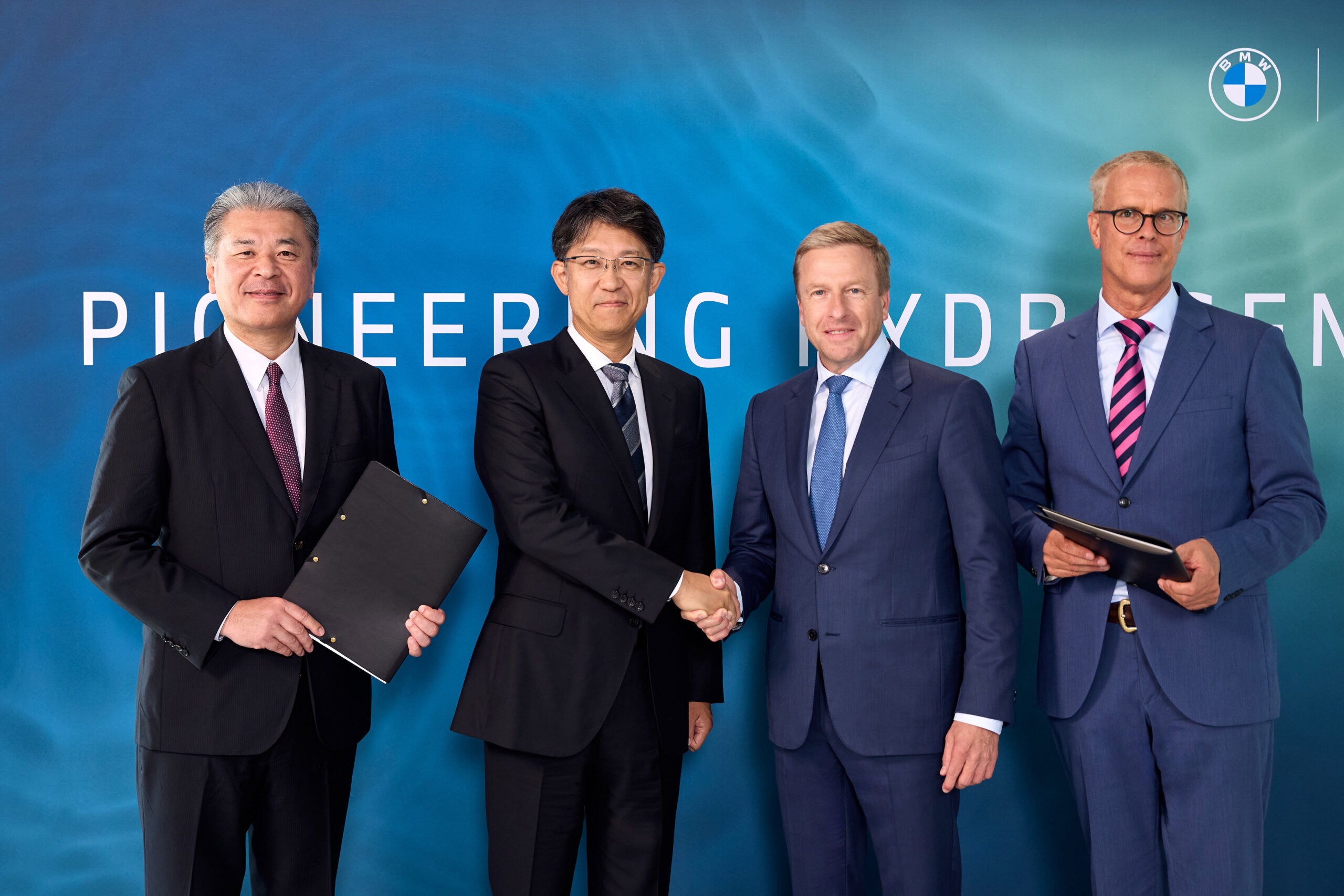Toyota and BMW join forces for hydrogen technology
Innovation in fuel cell systems
The two companies signed an agreement in December 2011 to establish a medium-term cooperation in environmental technology.
Together, they have promoted the development of environmental technologies, including fuel cells and sports cars, for more than a decade.
The two companies share a common vision of “realizing a hydrogen society” and will continue to accelerate technological innovation in fuel cell systems.
Third generation fuel cell technology
The two companies will offer customers a wider range of options by equipping more passenger cars with hydrogen fuel cell systems.
Toyota and BMW are collaborating on the development of a third-generation fuel cell system.
This will be used in both companies’ models to offer customers a wider range of fuel cell electric vehicles (FCEV).
As a first step, BMW plans to launch its first mass-produced FCEV in 2028.
The two companies will also work to create synergy through cooperation in development and procurement.
In addition, they will reduce costs by combining powertrain units to expand demand for commercial and passenger vehicles.
By making FCEV a more accessible option, the partnership will help create a hydrogen company.
Sustainable hydrogen networks
Both companies believe that collaboration with like-minded partners is essential to realizing a hydrogen society.
In the early stages, as hydrogen gains popularity, demand clusters will be necessary, with Toyota and BMW promoting sustainable hydrogen supply by creating demand and working closely with hydrogen producing companies and distribution and refueling facilities to ensure stable hydrogen supply and reduce costs.
‘Multi-pathway’ approach
Koji Sato, President of Toyota said, “We are pleased that the cooperation between BMW and Toyota has entered a new phase. In our long history of partnership, we have confirmed that BMW and Toyota share the same passion for cars and the same belief in ‘open technology’ and a ‘multi-pathway’ approach to carbon neutrality. Based on these shared values, we will deepen our cooperation in efforts such as joint development of next-generation fuel cell systems and infrastructure expansion, with the goal of creating a hydrogen company. We will accelerate our efforts together with BMW and partners in various industries to realize a future where hydrogen energy supports society.”
Oliver Zipse, Chairman of the Management Board of BMW AG: “This is a milestone in the history of the automotive industry: the very first fuel cell car to be mass-produced and offered by a global premium manufacturer. Powered by hydrogen and driven by the spirit of our collaboration, it will highlight how technological advances are shaping the mobility of the future. And it will usher in an era of high demand for fuel cell electric vehicles.”
Key energy source on road to carbon neutrality
Toyota has positioned hydrogen as a key energy source in its pursuit of carbon neutrality and has launched initiatives in cooperation with many partners in the area of “production, transportation, storage and use” of hydrogen.
Toyota aims to be “best-in-town” by providing locally rooted management tailored to the market characteristics and customer needs of each region.
Going forward, we will continue to address customer needs in each region by focusing on a multi-pathway approach that includes FCEV, BEV, HEV and PHEV options.
All this while working steadily to reduce CO2 emissions.

